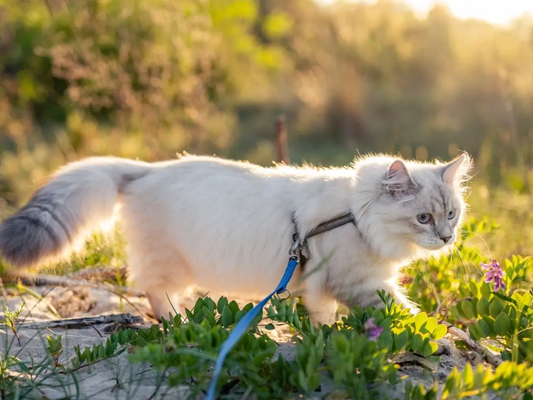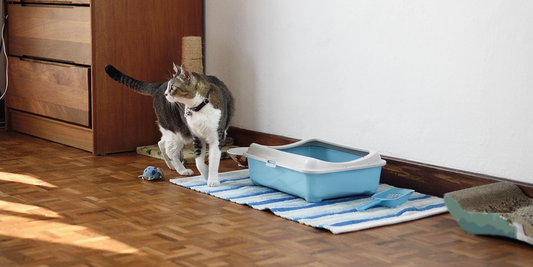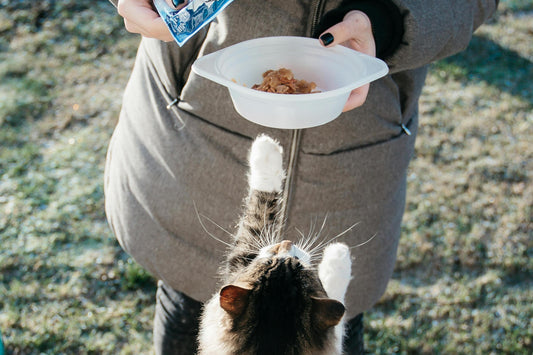Introduction
Cats are known for their discerning noses and unique preferences, especially when it comes to scents. Understanding what odors cats hate can help you create a more pleasant environment for your feline friend. From household items to outdoor smells, here are the top 10 odors that cats simply can't stand.
What are some odors that cats hate?
-
Citrus Scents
Cats have a strong aversion to citrus smells. The scent of oranges, lemons, and grapefruits is overwhelming for them. Consider using citrus-scented cleaners or placing citrus peels in areas where you want to deter your cat from going.
Engaging Paragraph: Have you ever noticed your cat wrinkling its nose at the smell of oranges? That's because citrus scents are among the top odors that cats hate. The strong, tangy aroma of citrus fruits is simply unbearable for our feline friends. To keep your cat away from certain areas of your home, try using citrus-scented cleaners or placing citrus peels strategically to discourage them from exploring unwanted areas.
-
Strong Perfumes
Cats are sensitive to strong perfume scents, particularly those with floral or musky undertones. Avoid spraying perfumes or air fresheners near areas where your cat spends time, as these scents can be overwhelming and unpleasant for them.
Engaging Paragraph: While you might enjoy spritzing on your favorite perfume, your cat may not share the same sentiment. Cats have a keen sense of smell, and strong perfumes can be overwhelming for them. Opt for unscented or lightly scented products to keep your cat comfortable and happy.
-
Onions and Garlic
Onions and garlic contain compounds that can be toxic to cats if ingested in large quantities. Even the smell of these ingredients can be off-putting to cats. Be cautious when cooking with onions and garlic, and ensure that your cat doesn't have access to these foods.
Engaging Paragraph: While onions and garlic add flavor to our favorite dishes, they're definitely not favorites among our feline companions. In fact, the mere scent of these ingredients can be enough to send cats running in the opposite direction. Keep these items securely stored away and out of reach of your curious cat to avoid any potential health issues.
-
Vinegar
The strong, pungent smell of vinegar is a major turn-off for cats. While vinegar can be a useful household cleaner, it's best to use it sparingly and in well-ventilated areas to avoid overwhelming your cat with its scent.
Engaging Paragraph: Vinegar is known for its cleaning properties, but it's also known for its strong, acrid smell. Cats find the scent of vinegar particularly unpleasant, so it's best to use it sparingly around them. If you need to clean with vinegar, make sure to dilute it and use it in well-ventilated areas to minimize its impact on your cat's sensitive nose.
-
Mint
While humans may enjoy the refreshing scent of mint, cats are not fans. The strong aroma of mint can be overwhelming for cats and may cause them to avoid areas where minty scents are present.
Engaging Paragraph: Minty fresh breath might be desirable for humans, but for cats, the scent of mint can be quite off-putting. Whether it's in the form of toothpaste, gum, or air fresheners, cats tend to steer clear of anything with a strong minty aroma. Keep this in mind when choosing products for your home to ensure your cat feels comfortable in its environment.
-
Ammonia
Ammonia is commonly found in household cleaners and can be highly irritating to cats. The strong, chemical odor of ammonia can cause respiratory issues and discomfort for cats. Opt for ammonia-free cleaning products to keep your cat safe and happy.
Engaging Paragraph: Ammonia is a powerful cleaning agent, but it's one that cats definitely don't appreciate. The harsh chemical odor of ammonia can be irritating to their sensitive noses and can even cause respiratory issues if inhaled in large quantities. To ensure your cat's well-being, choose cleaning products that are free of ammonia and other harsh chemicals.
-
Cinnamon
While cinnamon may be a popular spice in baking, it's not a favorite scent among cats. The strong, spicy aroma of cinnamon can be overwhelming for cats and may cause them to avoid areas where it's present.
Engaging Paragraph: The warm, spicy scent of cinnamon might evoke cozy feelings for humans, but for cats, it's anything but inviting. Cats have a strong aversion to the smell of cinnamon, so it's best to avoid using cinnamon-scented products around them. Opt for more neutral scents to keep your cat feeling comfortable in its surroundings.
-
Chili Peppers
The fiery heat of chili peppers is not just off-putting to humans – it's also unpleasant for cats. The strong, pungent aroma of chili peppers can irritate cats' sensitive noses and may cause them to avoid areas where these odors are present.
Engaging Paragraph: While some humans enjoy the spicy kick of chili peppers, cats definitely don't share the same enthusiasm. The strong aroma of chili peppers can be overwhelming for cats and may even cause discomfort if inhaled. Keep your cat safe and comfortable by avoiding spicy foods and products with chili pepper scents.
-
Mothballs
Mothballs contain chemicals that emit a strong, pungent odor designed to repel insects. However, this odor is also highly unpleasant for cats and can cause respiratory issues if inhaled. Keep mothballs securely stored away from your cat to prevent any adverse reactions.
Engaging Paragraph: Mothballs may be effective at keeping insects away, but they're not something your cat will appreciate. The strong, chemical odor of mothballs can be overwhelming for cats and may even pose health risks if ingested or inhaled. Ensure your cat's safety by keeping mothballs securely stored out of reach.
-
Smoke
Smoke, whether from cigarettes, candles, or fireplaces, is highly irritating to cats' sensitive respiratory systems. Exposure to smoke can lead to respiratory issues and other health problems in cats. Keep your home smoke-free to protect your cat's health and well-being.
Engaging Paragraph: Just like humans, cats can be sensitive to smoke, and prolonged exposure can have serious consequences for their health. Whether it's from cigarettes, candles, or fireplaces, smoke can irritate cats' delicate respiratory systems and lead to respiratory issues over time. Keep your home smoke-free to ensure your cat stays happy and healthy.
FAQ
-
What are some natural ways to deter cats from certain areas?
There are several natural methods you can use to deter cats from specific areas. Citrus peels, coffee grounds, and lavender oil are all effective at keeping cats away without resorting to harsh chemicals.
-
Are there any odors that attract cats?
Yes, there are certain scents that cats find attractive, such as catnip and certain herbs like valerian root. These scents can be used to encourage cats to use scratching posts or litter boxes.
-
How can I neutralize unpleasant odors in my home without bothering my cat?
Opt for pet-safe cleaning products with mild or neutral scents to avoid overwhelming your cat's sensitive nose. Additionally, regularly cleaning and airing out your home can help eliminate odors without causing discomfort to your cat.
-
Can cats become accustomed to certain odors over time?
While cats may initially dislike certain smells, they can become desensitized to them over time, especially if they're exposed to them regularly. However, it's essential to monitor your cat's behavior and ensure they're not experiencing any adverse effects from prolonged exposure to particular odors.
-
How can I create a cat-friendly environment in my home?
Creating a cat-friendly environment involves providing plenty of enrichment, such as scratching posts, toys, and cozy resting spots, as well as ensuring access to fresh water and a clean litter box. Additionally, minimizing exposure to unpleasant odors can help keep your cat happy and comfortable.
-
What should I do if my cat shows signs of distress or discomfort around certain odors?
If your cat exhibits signs of distress or discomfort around specific odors, such as sneezing, coughing, or avoiding certain areas of your home, it's essential to remove the source of the odor and consult with your veterinarian if symptoms persist.
Conclusion
Understanding the odors that cats hate can help you create a more comfortable and inviting environment for your feline friend. By avoiding these unpleasant smells and incorporating cat-friendly scents and enrichment activities, you can ensure that your cat feels safe, happy, and at home in your living space.








